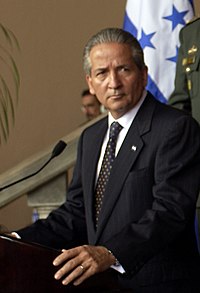
Honduras was inhabited by many indigenous peoples when the Spanish arrived in the 16th century. The western-central part of Honduras was inhabited by the Lencas, the central north coast by the Tol, the area east and west of Trujillo by the Pech, the Maya and Sumo. These autonomous groups maintained commercial relationships with each other and with other populations as distant as Panama and Mexico. Honduras has ruins of several cities dating from the Mesoamerican pre-classic period that show the pre-Columbian past of the country.

Politics of Honduras takes place in a framework of a multi-party system presidential representative democratic republic. The President of Honduras is both head of state and head of government. Executive power is exercised by the government. Legislative power is vested in the National Congress of Honduras. The party system is dominated by the conservative National Party of Honduras, the Liberal Party of Honduras, and Liberty and Refoundation.
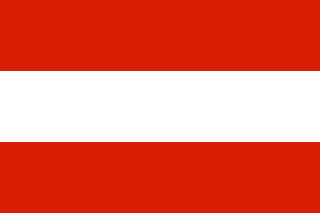
The Liberal Party of Honduras is a centrist liberal political party in Honduras that was founded in 1891. It is the oldest extant political party in the country; further, it is one of the two main parties that have, until recently, dominated Honduran politics. The party is a member of the Liberal International. The PLH is identified with the colours red and white, as the flag Francisco Morazán used in most of his military campaigns during time of the Central American Federal Republic.
Aguas Santas Ocaña Navarro is a former first lady of Honduras.

Porfirio Lobo Sosa also known by his nickname, Pepe Lobo, is a former Honduran politician and agricultural landowner who served as President of Honduras from 2010 to 2014. A member of the conservative National Party and a former deputy in the National Congress of Honduras from 1990, he was president of the National Congress of Honduras from 2002 to 2006. He came second to Manuel Zelaya with 46% of the vote in the 2005 general election. After the military ousted Zelaya in a coup d'état, Lobo was elected president in the 2009 presidential election and took office on 27 January 2010.
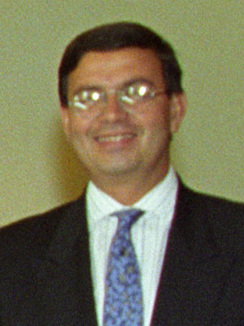
Rafael Leonardo Callejas Romero was the President of Honduras from 27 January 1990 to 27 January 1994, representing the National Party of Honduras (PNH).
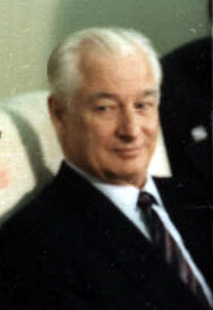
José Simón Azcona del Hoyo was President of Honduras from 27 January 1986 to 27 January 1990 for the Liberal Party of Honduras (PLH). He was born in La Ceiba in Honduras.

Iris Xiomara Castro Sarmiento, also known as Xiomara Castro de Zelaya, is a Honduran politician who is the 56th president of Honduras, in office since January 2022. She is the country's first female president, having earlier served as first lady during the presidency of her husband Manuel Zelaya.

Elvin Ernesto Santos Ordóñez is a Honduran politician who served as the vice president of Honduras from January 2006 to November 2008, when he resigned to stand as a Liberal Party candidate for the presidency in the 2009 elections. For the 2005 election the constitution was amended to create a single vice president. Although Santos served as vice president under the presidency of Manuel Zelaya, he distanced himself from Zelaya since there were conflicts between the two politicians. He was also against the fourth ballot box referendum that Zelaya promoted.
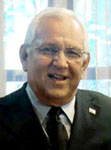
Roberto Micheletti Baín is a Honduran politician who served as the interim president of Honduras from 28 June 2009 to 27 January 2010 as a result of the 2009 Honduran coup d'état. The Honduran military ousted the President, and the National Congress read a letter of resignation, which was refuted two minutes later by Manuel Zelaya in conversation with CNN en Español; days later, the coup-plotters claimed that the Supreme Court had ordered to forcefully detain President Manuel Zelaya because "he was violating the Honduran constitution"; Zelaya was exiled rather than arrested. Micheletti, constitutionally next in line for the presidency, was sworn in as president by the National Congress a few hours after Zelaya was sent into exile by the Honduran military. He was not acknowledged as de jure president by any government or international organization. The 2009 general election took place as planned in November and elected Porfirio Lobo Sosa to succeed Micheletti.
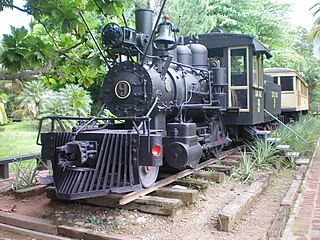
Honduras is a republic in Central America, at times referred to as Spanish Honduras to differentiate it from British Honduras, which became the modern-day state of Belize.

Authoritarian General Tiburcio Carías Andino controlled Honduras during the Great Depression, until 1948. In 1955—after two authoritarian administrations and a general strike initiated by banana workers—young military reformists staged a coup that installed a provisional junta and paved the way for constituent assembly elections in 1957. This assembly appointed Ramón Villeda Morales as president and transformed itself into a national legislature with a 6-year term.
The modern history of Honduras is replete with large-scale disappearances of left-leaning union members, students and others. The legislature approved a new constitution in 1982, and the Liberal Party government of President Roberto Suazo Córdova took office. Suazo relied on United States support — including controversial social and economic development projects sponsored by the United States Agency for International Development — during a severe economic recession. According to the US State Department, "Honduras became host to the largest Peace Corps mission in the world, and non-governmental and international voluntary agencies proliferated."
The 2009 Honduran constitutional crisis was a political confrontation concerning the events that led to, included, and followed the 2009 Honduran coup d'état and the political breakdown associated with it. The coup was repudiated around the globe, but Roberto Micheletti, head of the government installed after the coup, has claimed that the Honduran Supreme Court ordered the detention of Manuel Zelaya, deposed President of Honduras, and that the following succession was constitutionally valid.

The 2009 Honduran coup d'état, which took place during the 2009 Honduran constitutional crisis, occurred when the Honduran Army, following orders from the Honduran Supreme Court, ousted President Manuel Zelaya on 28 June 2009 and sent him into exile. Zelaya had attempted to schedule a non-binding poll to hold a referendum on convening a constituent assembly for writing a new constitution. Despite court orders to cease, Zelaya refused to comply, and the Honduran Supreme Court issued a secret arrest warrant dated 26 June. Two days later, Honduran soldiers stormed the president's house in the middle of the night, detained him, and thwarted the poll. Instead of putting him on trial, the army put him on a military plane and flew him to Costa Rica. Later that day, after reading a resignation letter of disputed authenticity, the Honduran Congress voted to remove Zelaya from office and appointed Head of Congress Roberto Micheletti, his constitutional successor, to complete his term. This was the first coup to occur in the country since 1978.

Rafael Pineda Ponce was a Honduran professor and politician in the Liberal Party of Honduras and President of the National Congress of Honduras from 1998 to 2002.
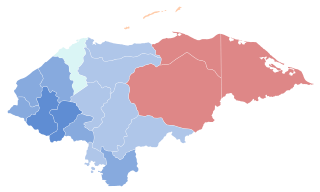
General elections were held in Honduras on 24 November 2013. Voters went to the polls to elect a new President, the 128 members of the National Congress, 298 Mayors and vice-mayors and their respective councilors and 20 representatives to the Central American Parliament.
Rodolfo Zelaya Portillo is a Honduran politician. He is a former congressman of the National Congress of Honduras representing the National Party of Honduras for the department of Francisco Morazán. He is one of the most notable and recognized politicians in the area of security and defense.

The nations of Honduras and Mexico established diplomatic relations in 1879. Both nations are members of the Association of Caribbean States, Community of Latin American and Caribbean States, Organization of American States, Organization of Ibero-American States and the United Nations.
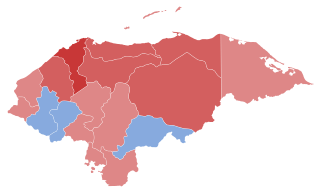
General elections were held in Honduras on 28 November 2021. Among the positions being contested was the President of Honduras, head of state and head of government of Honduras, to replace Juan Orlando Hernández from the National Party. Also up for election were the 128 deputies of the National Congress, 20 deputies to the Central American Parliament, 298 mayors and 298 vice mayors, as well as 2,092 council members.
